In October 2022, Bill Gates discovered he had become a grandfather, an event that profoundly impacted his work. In his blog, Gates Notes, he wrote that this newfound inspiration drove him to ensure a better future for all children and grandchildren. Gates, a visionary, often imagines a brighter world ahead. In a February 2024 podcast, he shared a thought-provoking question he would ask a time traveler from 2100, inviting us all to reflect and ponder.
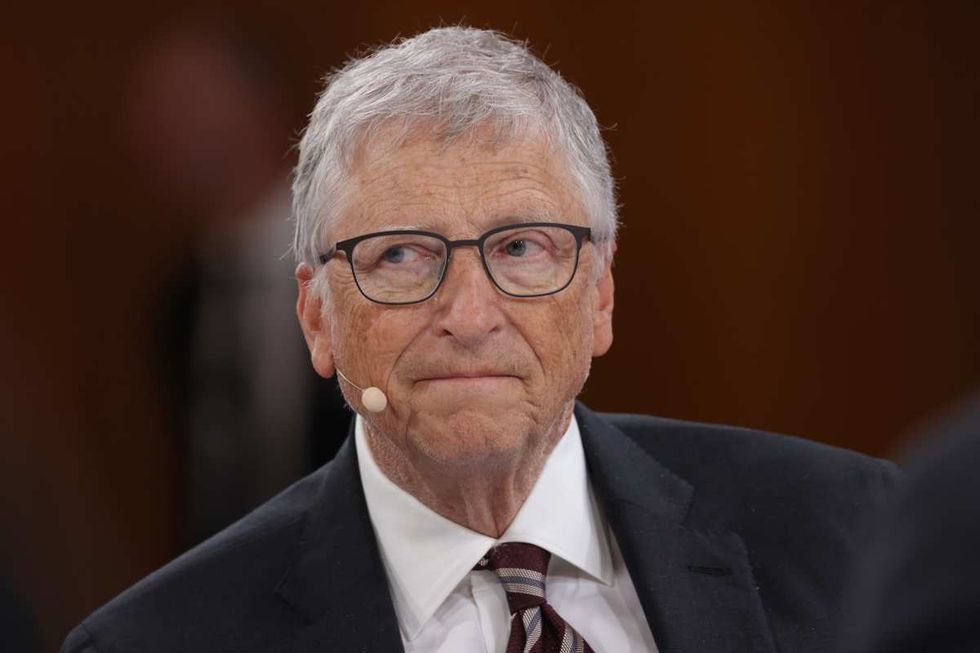
Gates is already known as a visionary whose work and philanthropy have filled the world with breakthrough innovations. Over the past few years, his non-profit organization, the Gates Foundation, has been working on causes relating to climate change, energy, health, AI, gene therapy, poverty, inequity, and more. In an episode of Gates’ “Unconfuse Me” podcast early this year, Gates conversed with a guest named Hannah Ritchie, a University of Oxford data scientist and a researcher at Our World in Data. They talked about Ritchie’s latest book “Not the End of the World,” which unfolds some remarkable insights and research-based solutions on sustainability, environmental problems, income crisis, and overpopulation.
In the initial portion of the episode, the two speakers discussed topics ranging from climate change to air pollution, waste management in low-income countries, and decarbonizing food and agriculture. They reviewed the hazards of coal usage and talked through the crisis of plastic pollution in oceans.
As the episode was about to wrap up, Gates asked a thought-provoking question from Ritchie, “If you had the opportunity to ask somebody who had time traveled from 2100, what would be your top questions for them?” In response to his question, Ritchie said, “I think one of my top questions would be ‘What share of the world is living on less than $20 a day?’”
She elaborated this by saying that when she looks into the future, what she wants to see is “a world where most people, or everyone in the world, is living a comfortable life.” Giving precise figures, she added, “I’d want to know how many people are able to live on $20 a day, or a $30 a day, which is kind of the poverty line in rich countries. Now if low-and-middle income countries are managing to reach that level of income, I think that would be an amazing achievement.”

She further said that if the possibility of people living on $20-$30 a day, becomes reality, it would signal several things. One, it would indicate that considerable progress has been made in health, agriculture, and poverty. Secondly, it would demonstrate how well the environmental problems are being tackled.
Ritchie believes environmental problems and poverty are interlinked. And she is true. According to the UN Environment Programme, 70% of the world’s poor population draws upon natural resources for most of their livelihoods. The result is, that these natural resources are rapidly exhausting across the globe, further leading to problems like plastic pollution, climate vulnerability, growing resource demands, etc.
Gates, himself, is known as a poverty control humanitarian and a climate change optimist. He has committed over $1.8 billion to fight poverty and hunger. Plus, he founded the climate investment firm Breakthrough Energy and donated millions through the Bill and Melinda Gates Foundation for environmental causes, per Fortune. Furthermore, he signs a $10 million check each year to carbon capture company Climeworks, a technology dedicated to removing CO₂ emissions in the air.
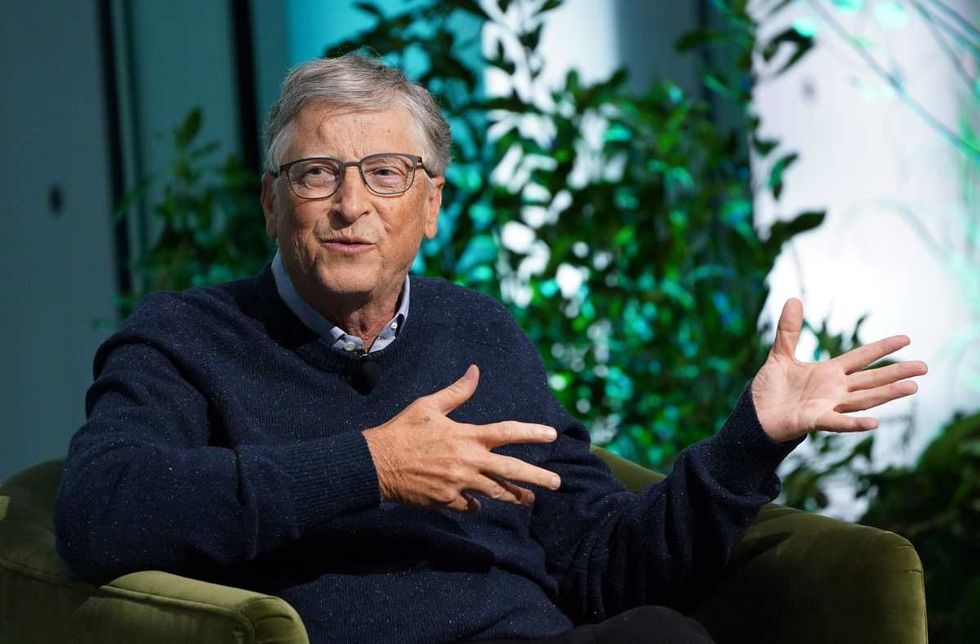
“I think it is pretty smart because, in the end, it's all measured through human welfare,” he said in reply to Ritchie’s answer, and added, “The end goal is not less plastics or even a certain temperature, it’s ‘Are humans thriving?’” He turned the torch and revealed the one question he’d ask if he met a time traveler from 2100. “I have to say if I met this person, I’d sort of want to say, how are you generating energy? Is it fusion or fission or some unexpected thing?”
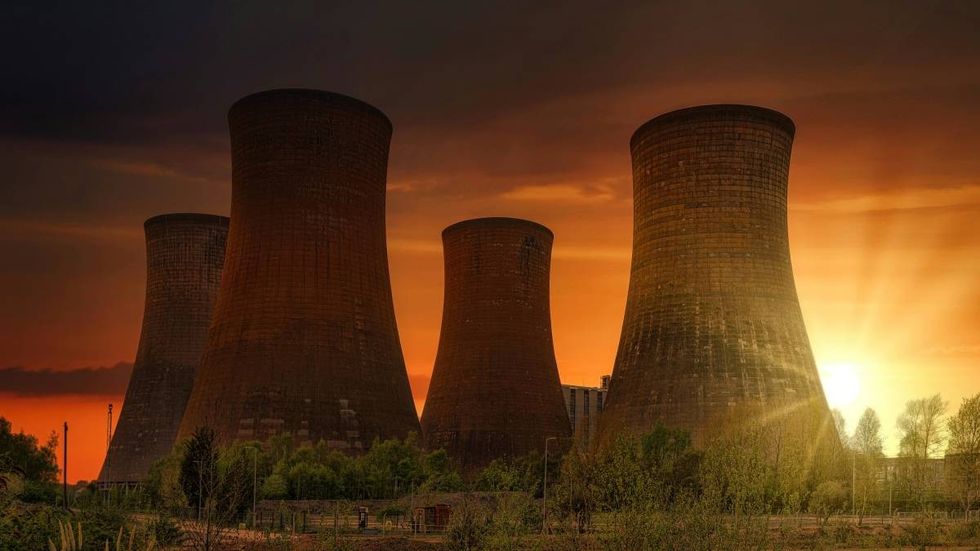
Department of Energy defines “fission” and “fusion” as two “physical processes that produce massive amounts of energy from atoms.” Fission occurs when a neutron slams into a larger atom, forcing it to excite and split into two smaller atoms, which releases massive energy. In contrast, fusion occurs when two atoms slam together to form a heavier atom, which produces energy greater than fission. Among the two, fusion is a more environmentally friendly source of energy, per the International Atomic Energy Agency.
Gates is very active in working on the concerns of environmental degradation, which have been leapfrogging in the last few years. To deal with these, he even co-founded the nuclear energy startup TerraPower in 2006, in addition to Breakthrough Energy. TerraPower is an innovative technology that provides safe, affordable and abundant carbon-free energy.

At the same time, the goal is neither to curb plastic pollution nor raise minimum income; it’s all about human welfare. “The report card isn’t the tactics. It’s the quality of life,” Gates said, concluding the podcast.





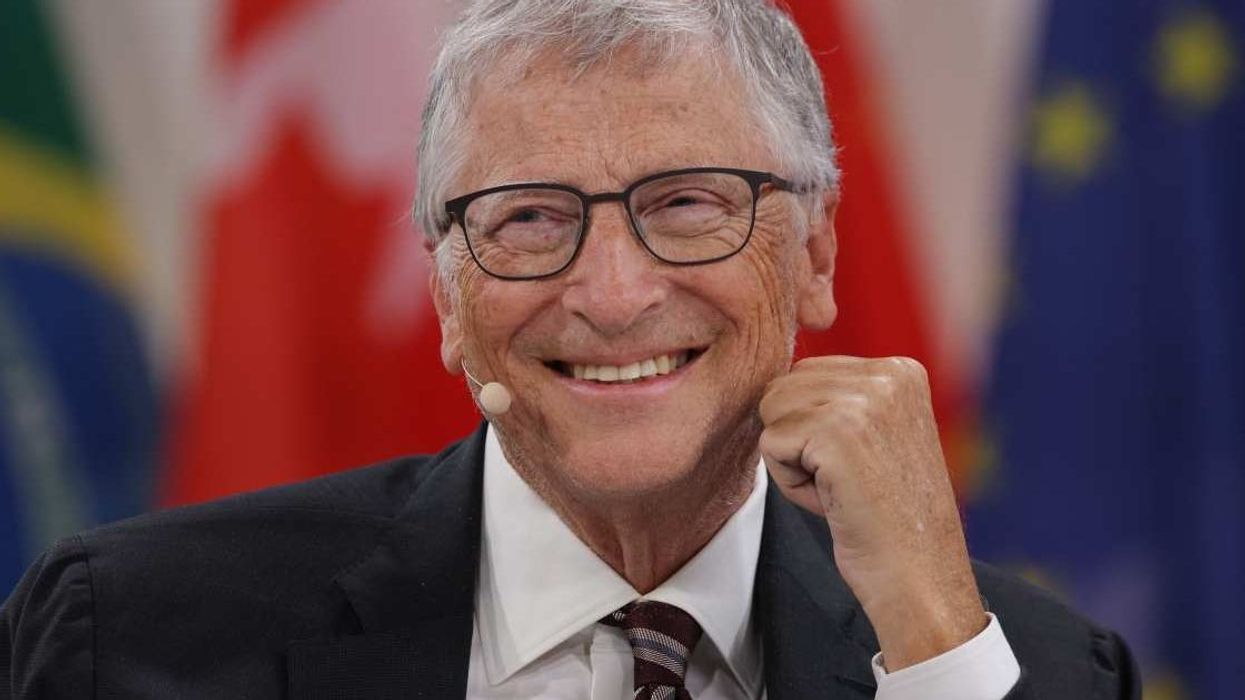


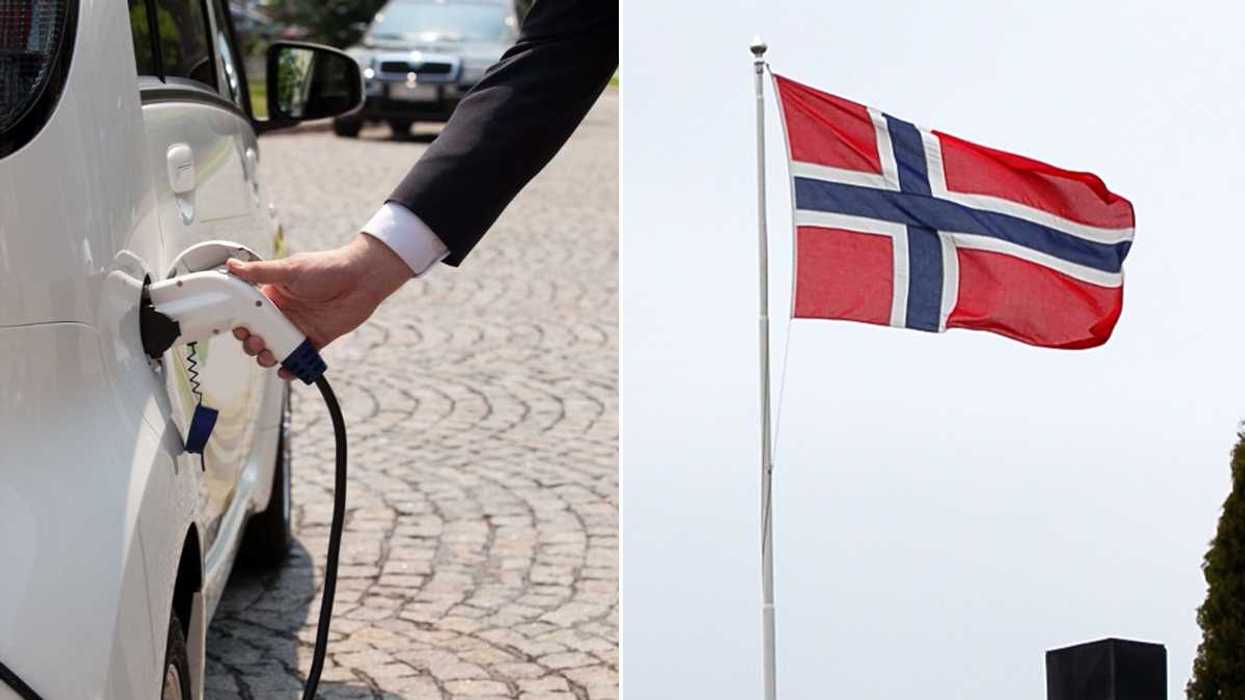









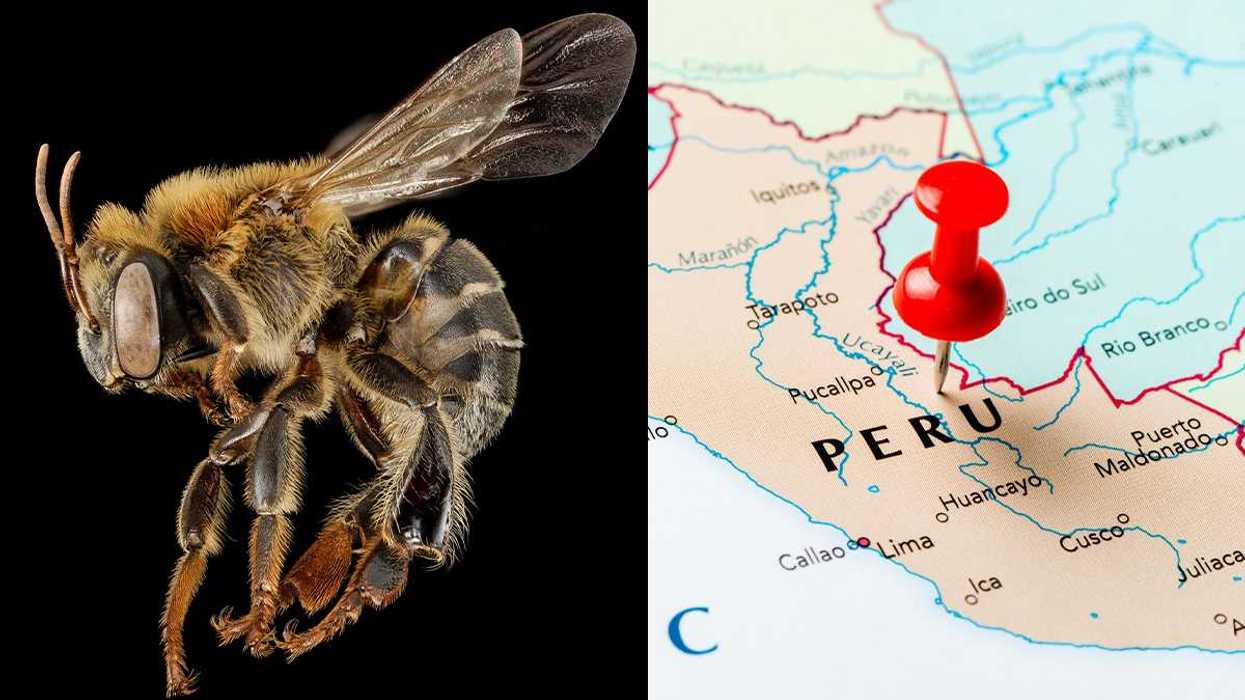
 Peru stingless bee.USGS Bee Inventory and Monitoring Lab/
Peru stingless bee.USGS Bee Inventory and Monitoring Lab/ 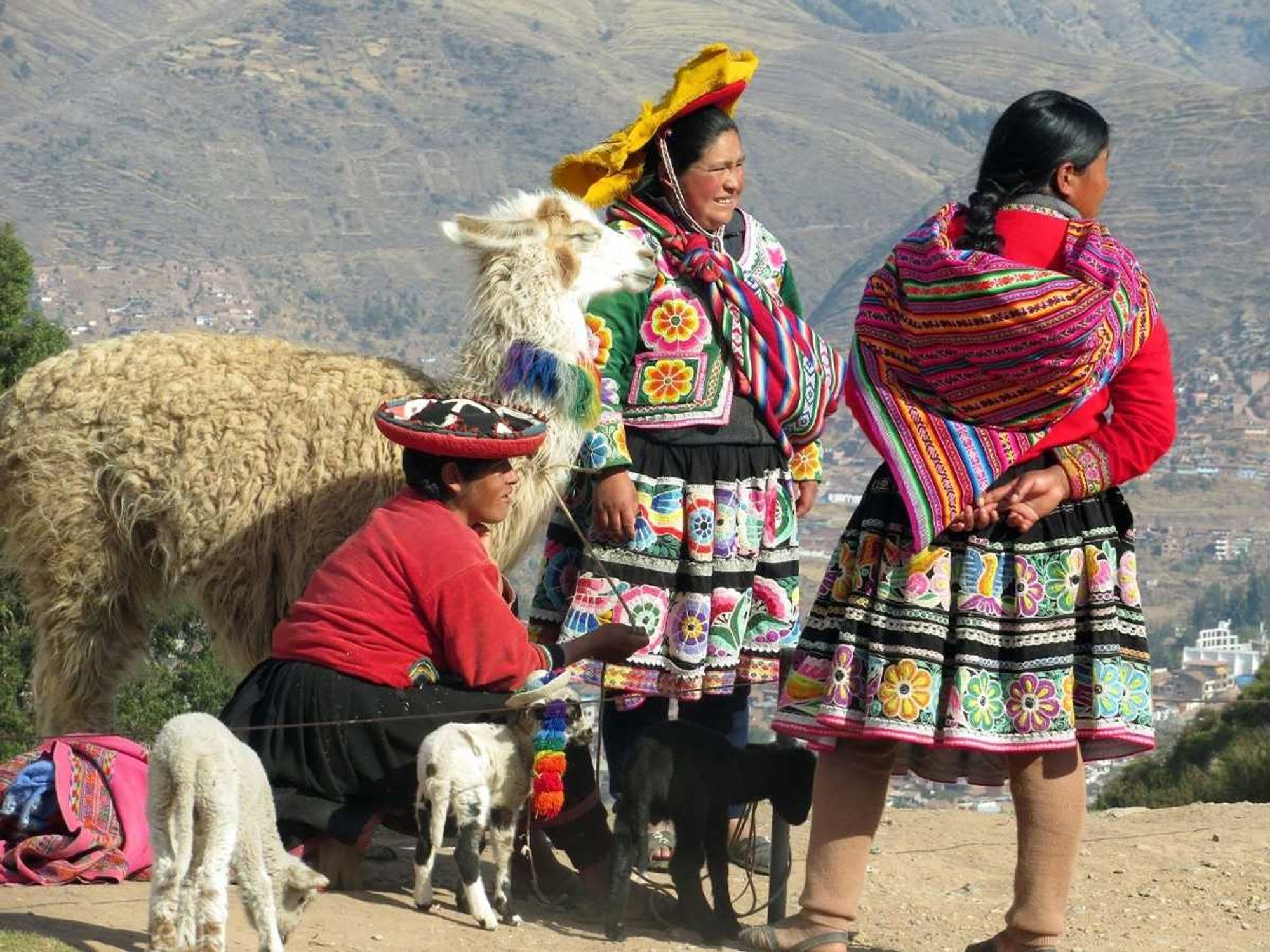 Indigenous Peruvian people.Photo credit
Indigenous Peruvian people.Photo credit 
 Representative Image: Accents reveal heritage and history.
Representative Image: Accents reveal heritage and history.  Representative Image: Even unseen you can learn a lot from an accent.
Representative Image: Even unseen you can learn a lot from an accent. 
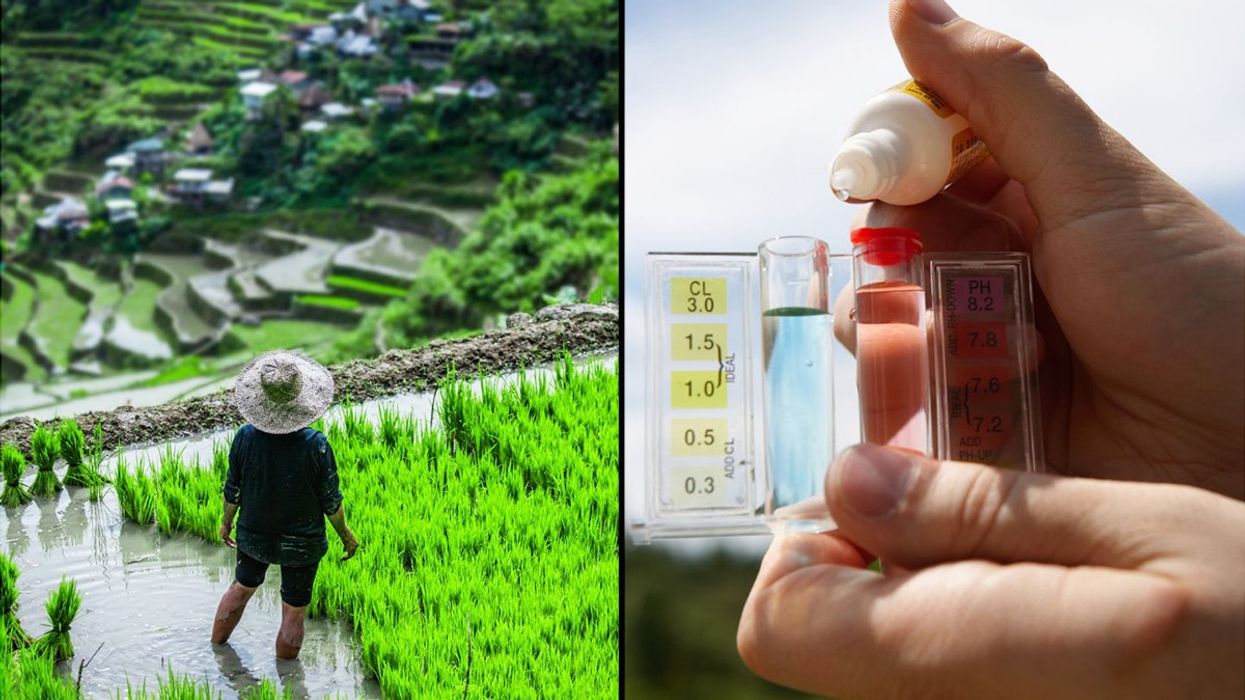
 Rice grain and white rice.Image via
Rice grain and white rice.Image via  Person eats rice.Image via
Person eats rice.Image via  Washing and rinsing rice.
Washing and rinsing rice.  Mother and daughter eating rice meal.Image via
Mother and daughter eating rice meal.Image via 

 Bees feeding on food source.Image via
Bees feeding on food source.Image via 
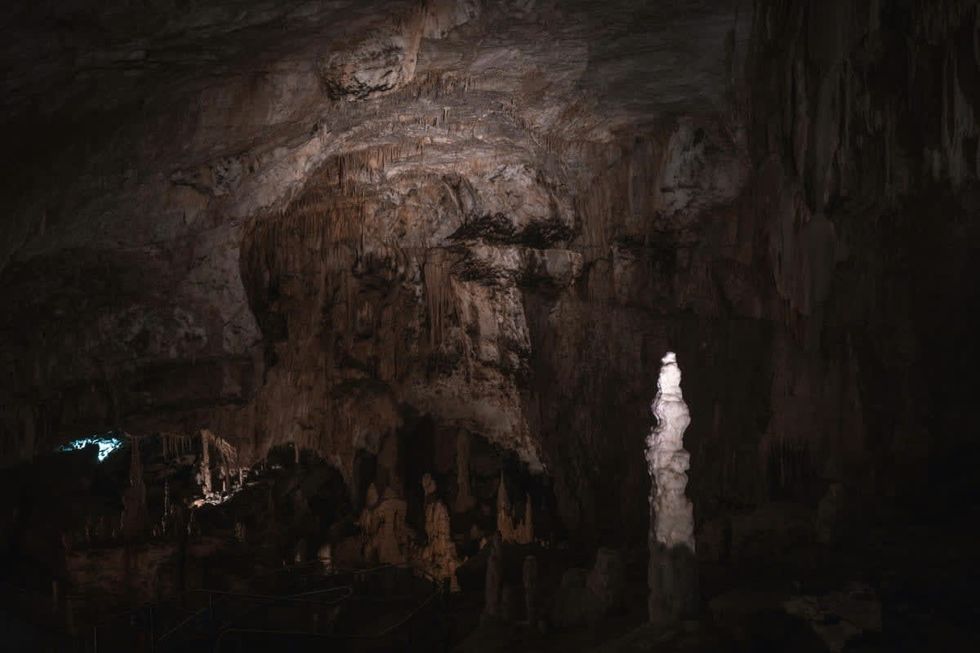 In the depths...Pexels | francesco ungaro
In the depths...Pexels | francesco ungaro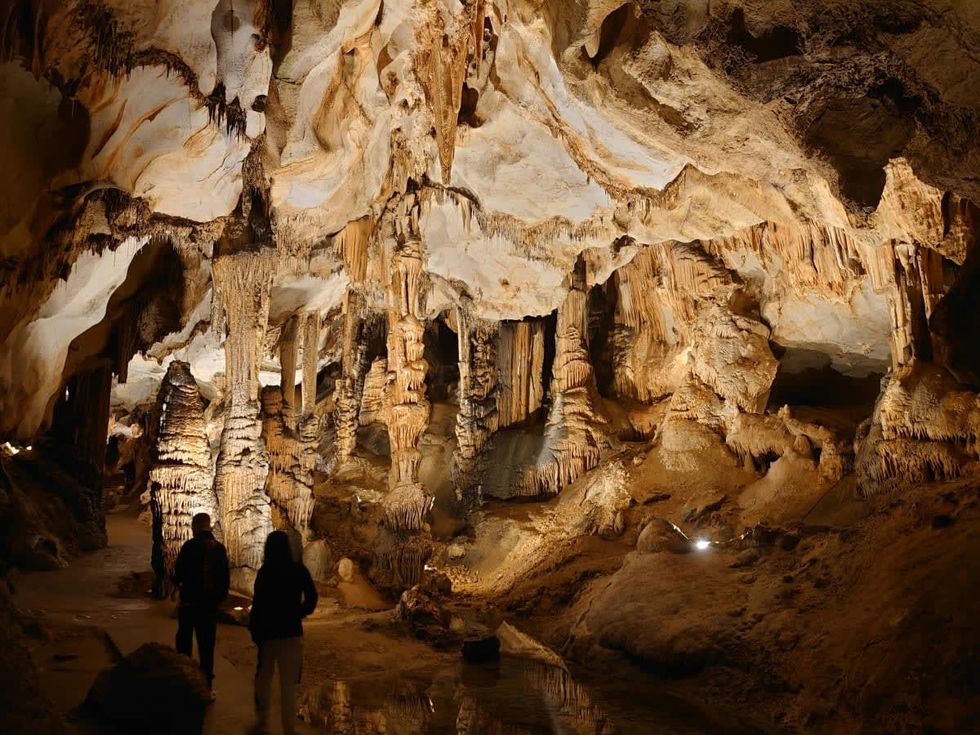 Hope the lights stay on. Pexels | parfait fongang
Hope the lights stay on. Pexels | parfait fongang "That was beyond crazy..." YouTube |
"That was beyond crazy..." YouTube |  "This is the stuff of my nightmares..."YouTube |
"This is the stuff of my nightmares..."YouTube |  "Totally blown away..." YouTube |
"Totally blown away..." YouTube |
President Donald J. Trump and photo of a forest.
Public united and adamantly opposes Trump’s plan to roll back the Roadless Rule
There doesn't seem to be much agreement happening in the U.S. right now. Differing moral belief systems, economic disparity, and political divide have made a country with so many positives sometimes feel a little lost. Everyone desperately seeks a niche, a connection, or a strong sense of community to which they can feel a "part of," rather than just "apart."
But there seems to be one thing that the country strongly unites over, and that's the "Roadless Rule." With the Trump Administration attempting to roll back conservation policies that protect U.S. National Forests, Americans are saying in harmony an emphatic "No." A nonpartisan conservation and advocacy organization, the Center for Western Priorities, reviewed a comment analysis on the subject. After receiving 223,862 submissions, a staggering 99 percent are opposed to the president's plan of repeal.
What is the 'Roadless Rule' policy implemented in 2001?
The Roadless Rule has a direct impact on nearly 60 million acres of national forests and grasslands. According to the U.S. Department of Agriculture, the rule prohibits road construction and timber harvests. Enacted in 2001, it is a conservation rule that protects some of the least developed portions of our forests. It's considered to be one of the most important conservation wins in U.S. history.
America's national forests and grasslands are diverse ecosystems, timeless landscapes, and living treasures. They sustain the country with clean water and the wood products necessary to build our communities. The National Parks protected under their umbrella offer incredible recreational retreats and outdoor adventure.
Why does the administration want to roll it back?
U.S. Secretary of Agriculture Brooke L. Rollins told the Department of Agriculture in a 2025 press release, “We are one step closer to common sense management of our national forest lands. Today marks a critical step forward in President Trump’s commitment to restoring local decision-making to federal land managers to empower them to do what’s necessary to protect America’s forests and communities from devastating destruction from fires." Rollins continued, “This administration is dedicated to removing burdensome, outdated, one-size-fits-all regulations that not only put people and livelihoods at risk but also stifle economic growth in rural America. It is vital that we properly manage our federal lands to create healthy, resilient, and productive forests for generations to come. We look forward to hearing directly from the people and communities we serve as we work together to implement productive and commonsense policy for forest land management.”
Forest Service Chief Tom Schultz explained the Roadless Rule frustrated land management and acts as a challenging barrier to action. It prohibits road construction needed to navigate wildfire suppression and properly maintain the forest. Schultz said, “The forests we know today are not the same as the forests of 2001. They are dangerously overstocked and increasingly threatened by drought, mortality, insect-borne disease, and wildfire. It’s time to return land management decisions where they belong – with local Forest Service experts who best understand their forests and communities."
Why are people adamantly opposed to the proposed rollback?
A 2025 article in Earthjustice, a nonprofit environmental law organization, expressed its concern over the protection of national forests covering 36 states and Puerto Rico. A rescinded rule allows increased logging, extractive development, and oil and gas drilling in previously undisturbed backcountry. Here is what some community leaders had to say about it:
President Gloria Burns, Ketchikan Indian Community, said, "You cannot separate us from the land. We depend on Congress to update the outdated and predatory, antiquated laws that allow other countries and outside sources to extract our resource wealth. This is an attack on Tribes and our people who depend on the land to eat. The federal government must act and provide us the safeguards we need or leave our home roadless. We are not willing to risk the destruction of our homelands when no effort has been made to ensure our future is the one our ancestors envisioned for us. Without our lungs (the Tongass) we cannot breathe life into our future generations.”
Linda Behnken, executive director of the Alaska Longline Fishermen’s Association, stated, "Roadbuilding damaged salmon streams in the past — with 240 miles of salmon habitat still blocked by failed road culverts. The Roadless Rule protects our fishing economy and more than 10,000 jobs provided by commercial fishing in Southeast Alaska.”
The Sierra Club's Forest Campaign Manager Alex Craven seemed quite upset, saying, "The Forest Service followed sound science, economic common sense, and overwhelming public support when they adopted such an important and visionary policy more than 20 years ago. Donald Trump is making it crystal clear he is willing to pollute our clean air and drinking water, destroy prized habitat for species, and even increase the risk of devastating wildfires, if it means padding the bottom lines of timber and mining companies.”
The 2025 recession proposal would apply to nearly 45 million acres of the national forests. With so many people writing in opposition to the consensus, the public has determined they don't want it to happen.
Tongass National Forest is at the center of the Trump administration's intention to roll back the 2001 Roadless Rule. You can watch an Alaska Nature Documentary about the wild salmon of Tongass National Forrest here:
- YouTube www.youtube.com
The simple truth is we elect our public officials to make decisions. The hope is they do this for all of our well-being, although often it seems they do not. Even though we don't have much power to control what government officials do, voicing our opinions strongly enough often forces them to alter their present course of action. With a unanimous public voice saying, "No!" maybe this time they will course correct as the public wishes.